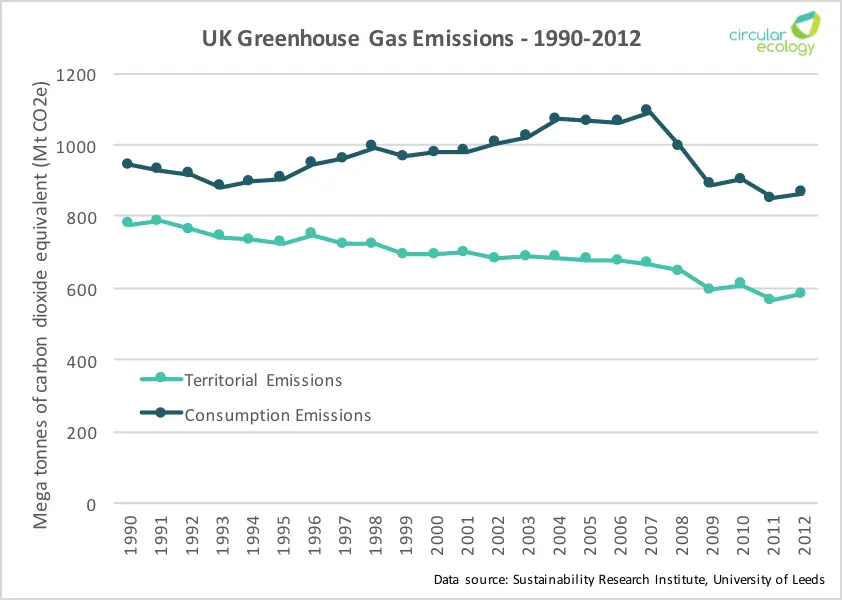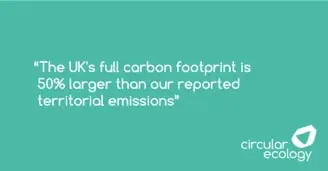Blog, Carbon Footprint
Are We Really Reducing the UK’s Carbon Footprint?
Blog by Dr Stephen Allen
In the UK, we appear to have significantly reduced our impact on the climate since 1990, with our reported annual greenhouse gas emissions falling by 25% (2012).
But this isn’t a complete picture of our contribution to climate change, because it ignores the embodied carbon of all the stuff we import. When this is considered, are we really reducing the UK’s carbon footprint, and what are the implications for communities and businesses looking to lower their climate impact?
Direct Emissions – An Incomplete Picture
However, to support our lifestyles and businesses in the UK we have been importing an increasing amount of stuff, much more than we export. We need to add in the embodied carbon of our net imports to understand the full carbon footprint of our consumption in the UK, also known as our ‘consumption-based’ emissions inventory.
By 2012, the full carbon footprint of the UK was a massive 50% larger than our territorial emissions suggest, having been 20% larger in 1990. So while we have reduced our territorial emissions, we have increasingly shifted our ‘carbon burden’ abroad. This does not represent a true shift to a low carbon economy.
The territorial reporting approach is established for international reporting and target setting. But the full carbon footprint perspective provided by consumption-based reporting is clearly needed to determine whether the climate impact of our national activities really is falling. The good news is that Defra is continuing (for now) to publish the UK’s consumption-based emissions alongside our more established territorial accounts.
What This Means for UK Communities and Businesses
The benefits of doing this can be wide ranging. First and foremost, organisations can ensure they are focusing reduction efforts where their impacts are the greatest. There is also mounting evidence showing that they can identify resource and cost saving opportunities, spur innovation, improve their reputation, differentiate their brand, respond to customer requirements, comply with reporting legislation and motivate employees.
The scale of the climate challenge is such that we all need to play our part as communities and businesses. The case of UK emissions reporting is a national example of why a full ‘footprint’ perspective is needed: to ensure real reductions are achieved, rather than burdens simply shifted elsewhere.
If you like this post please consider sharing it on social media using the buttons below, or signing up to our Newsletter.



